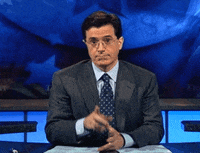As a rule, journalists are not fond of secrecy and powerful leaders telling their followers to avoid the press.
This is especially true during high-profile meetings that could end up affecting the lives of a billion or so believers and institutions — parishes, schools, hospitals, you name it — affecting millions more.
Thus, I have been waiting to see what the mainstream press, especially in its most elite forms, would do with the decision by Pope Francis to ask participants in the global Synod on Synodality to, well, zip their lips when it comes to talking to the press. At the very least, I expected in-depth coverage of this angle and a hint of muted outrage.
Nope. Once again, we seem to have an interesting and highly symbolic Catholic story that is, apparently, only “news” to religion-market publications and the “conservative” press. Perhaps it is crucial whether journalists identify more with the views of the leader calling for secrecy than they do with the newsmakers who are anxious see an event proceed “on the record”?
Just asking. I, for one, remember how reporters (including me) pushed hard to open (or even invade) closed-door Catholic proceedings when they focused on clergy sexual abuse and earlier Vatican efforts to discipline adventurous (shall we say) American theologians and even bishops. Journalists were certainly convinced that “Reform Dies in Darkness,” or words to that effect.
Anyway, the Associated Press did include the following way down in a “news you can use” round-up at the start of the synod: “Things to know about the Vatican’s big meeting on the future of the Catholic Church.”
The two-year preparatory phase of the synod was marked by a radical transparency in keeping with the goals of the process for participants to listen to each other and learn from one another. So it has come as something of a surprise that Francis has essentially imposed a media blackout on the synod itself.
While originally livestreams were planned, and several extra communications officers were hired, organizers have made clear this is a closed-door meeting and participants have been told to not speak to journalists.
Paolo Ruffini, in charge of communications for the meeting, denied the debate had been put under the pontifical secret, one of the highest forms of confidentiality in the church.





